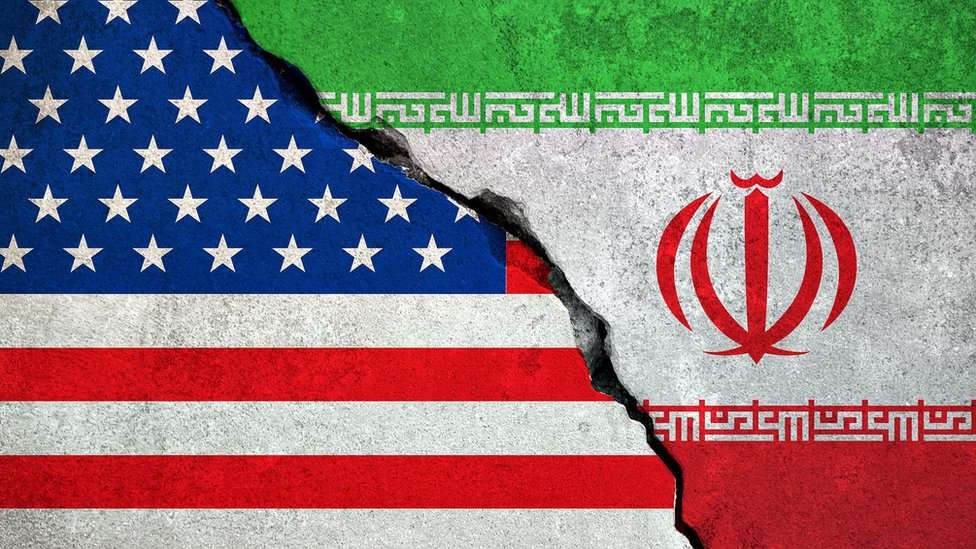Two years ago, Iran’s leader Rouhani addressed the UN General Assembly and warned the United States of America point blank to never engage in a raqs-e-shamsheer: a fatal dance of blades, with the Iranian nation. He warned through metaphor that the revocation of the Nuclear Deal, and America’s incessant belligerence, was a thin-edged dance of swords the world would no longer stomach.
As a new decade begins, the world holds its breath as America brandishes and swings a venal sword for a new movement in the dance with Iran, having assassinated Gen. Suleimani of the Quds Forces in Baghdad. Vengeance has been promised, and the world news media is awash in the panic of what is popularly, but recklessly being labelled “WW3.” For now, “tens” of rockets have been fired at US bases, and casualties have not resulted.
President Trump held a press conference which signalled détente, but tensions remain high, and both countries remain on the dance-floor of swinging blades. This is because many pressure groups continue to egg Trump on the warpath, including the leaders of foreign capitals. Among these, one group that has been particularly vociferous in its advocacy of an open conflict with Tehran is the military-industrial complex, notably the “defence” companies listed on the American S&P 500 Index.
The day after the murder of Suleimani was televised in America, the markets opened with defence company stocks soaring +5 per cent, outperforming the overall S&P 500 by hefty percentage points (the overall index was negative that day). Lockheed Martin (LMT) rose 3.6 per cent, Northrup Grumman (NOC) rose +5.6 per cent, and AeroVironmment (a drone-maker) rose +6.9 per cent.
These companies, which make the proverbial “swords” that the US brandishes, drool with the prospect of further military contracts, sustaining their vast budgets and long-term cashflows, and above all assuring heftier bonuses for the CEOs and other executives of the military-industrial complex. Indeed, a brazen conflict with Iran shall keep the values of their stocks high while uncertainties loom and investors seek a profitable haven against a rising tide of fear and havoc.
War-profiteering has enriched shareholders of defence companies on an ongoing basis since at least the Gulf War, with the intermittent lulls of peace in the Middle East often causing disappointment for defence executives. In fact, one of the most sadistic sermons one can ever listen to is the conference call of a major US defence company. Held by the investor relations department and the executives of each company, these conference calls indicate how the companies rejoice at the “new opportunities” that arise around the world, particularly in the Middle East, for “sustained visibility into our revenue stream” through sales that will be translated into the wanton destruction of complete societies.
Trump had promised to end previous wars launched by his “foolish” predecessors, including Iraq and Afghanistan, which left the defence lobbies with no bone to chew on. Renewed American violence in the region, now in the guise of strikes against Iran, indicates that Trump recognises the need to throw one of his staunchest support lobbies, the defence-contract multinationals, a juicy bone.
Despite some expressions of détente, a raqs-e-shamsheer has intensified, and these sword-makers now salivate at the prospect that, given Iraq and Afghanistan are winding down, some arena of blood can be found to keep the earnings per share high and the returns on equity even higher.
So in the dance of blades that ensues, it is the defence complex of late capitalism that will cheer the loudest at the spectacle of renewed violence.
–The writer is the Director for Economics and National Affairs at the Centre for Aerospace and Security Studies (CASS). This article was first published in The Nation newspaper. He can be reached at [email protected].





